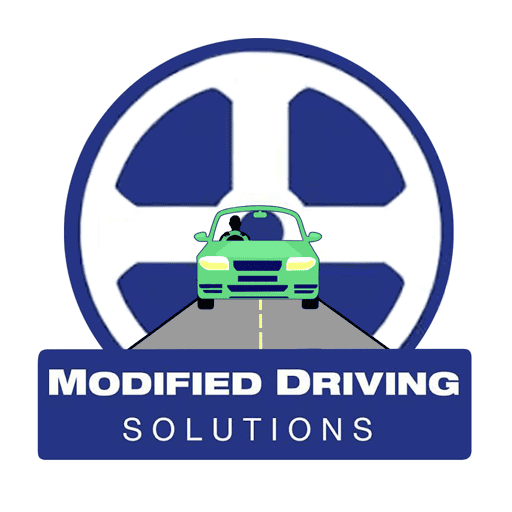While driving is a vital and necessary skill for many people, a person’s fitness to drive may be affected by their medical condition (or potential medical condition).
It is crucial that if you have a diagnosed medical condition or concerns regarding your general health, you see your doctor for a medical assessment to further examine your driving capacity.
In NSW, every driver has a legal responsibility to inform the RMS (Roads and Maritime Services) of any medical condition or disability that could potentially impact their ability to drive safely.
If you are unsure about how your medical condition may affect your driving or your ability to learn how to drive (for new/learner drivers), you should see your doctor.
As it is important to ensure that drivers are medically fit and safe to drive, there is a clear process in NSW that needs to be followed. This involves the completion of the RMS medical fitness to drive forms online.

Medical conditions that can impact your driving ability
- Blackouts
- Diabetes
- Cardiovascular issues
- Insomnia and sleeping problems
- Injury
- Musculoskeletal conditions
- Neurological disorders
- Psychiatric issues
- Substance abuse
- Vision issues
When to see your doctor
As a general rule, your doctor has the authority to make decisions regarding your fitness to drive. If you have a newly diagnosed medical condition, or if you have concerns that an existing condition may be worsening (and affecting your driving), you need to discuss this with your doctor. Similarly, if you have no established medical condition but you have concerns regarding your health, you should see your doctor.
Medical conditions that can impact your driving ability
- Blackouts
- Diabetes
- Cardiovascular issues
- Insomnia and sleeping problems
- Injury
- Musculoskeletal conditions
- Neurological disorders
- Psychiatric issues
- Substance abuse
- Vision issues
When to see your doctor
As a general rule, your doctor has the authority to make decisions regarding your fitness to drive. If you have a newly diagnosed medical condition, or if you have concerns that an existing condition may be worsening (and affecting your driving), you need to discuss this with your doctor. Similarly, if you have no established medical condition but you have concerns regarding your health, you should see your doctor.
What happens when you see your doctor?
It is important to be honest and as accurate as possible when discussing your health at the doctors when assessing fitness to drive. Depending on your current situation, your doctor may perform a general physical health assessment. If you have no diagnosed medical condition but are concerned about a potential health condition, your doctor may also recommend further medical investigations and assessments appropriate for your situation, such as blood tests, x-rays or other radiological tests.
The aim of the tests is to clarify any medical condition. While waiting for the results of the tests, your doctor will instruct you about whether you should be driving in the meantime. Your health professional may also refer you to a specialist if appropriate. If the doctor is unsure about whether you should continue to drive (and assesses that a medical condition is likely), they may recommend that you undertake an Occupational Therapy (OT) driving assessment. Your doctor should then complete the RMS medical fitness to drive form to inform the RMS of these medical concerns potentially affecting your driving capacity.
If you have an existing medical condition or disability and feel that driving is becoming more difficult, your health professionals will perform appropriate medical assessments. Your doctor may instruct you to take an OT fitness-to-drive assessment and fill out the RMS fitness-to-drive form.
If you are a new driver (i.e. learner driver) with a diagnosed health condition, your doctor will determine if your condition is currently affecting your driving capacity. If the doctor is unsure about the effects of your condition on your driving, they will complete the RMS medical fitness to drive form and direct you to have an OT driving assessment.
The RMS medical fitness to drive form
The purpose of the RMS medical fitness to drive form is to advise the RMS of a driver’s medical condition or disability that may potentially impact their driving skills. Having a medical condition does not mean that a person cannot drive, but it is important that the RMS is aware of any significant medical issue that could affect your driving. Your doctor has the authority and responsibility to inform the RMS of any medical condition that might alter your driving capacity. Essentially, the RMS medical fitness to drive form performs two imperative functions:
- It notifies the RMS of the details of your medical condition and general health
- It indicates to the RMS whether your medical condition is currently affecting your driving
Once your doctor has further examined how your medical condition is influencing your driving, they will send the form to the RMS, where they will indicate one of three options:
- Your medical condition is not affecting driving (you can drive as normal)
- Your medical condition is affecting your driving, and you are medically unfit to drive. Your licence will be cancelled.
- It is unclear at this stage if your medical condition is impacting your driving. You are required to have an OT driving assessment to make this determination.

The OT driving assessment
If your doctor cannot make a complete determination about your fitness to drive, they will instruct you to have an OT driving assessment. This is because your doctor does not actually witness your driving. The driving assessment is conducted by a specialised Driver Trained OT and is comprised of an off-road and on-road assessment.
At Modified Driving, we offer specialised Occupational Therapy Driving Assessments, ensuring all individuals the ability to drive with ease and confidence.
FIND OUT MORE ABOUT OUR OT DRIVING ASSESSMENTS
Age-based reviews
Drivers 75 years and older are required to have regular medical reviews to continue to drive. This applies regardless of whether you have a medical condition. Annual reviews are needed for older drivers, although age is not a medical condition. It is common for people to start to have physical and/or cognitive decline or issues as they get older. If any medical issues or concerns are identified in your annual review, your doctor will follow the process as outlined above.
Going the distance to ensure road safety for all drivers
Ensuring that you are medically fit to drive is not just a personal responsibility but a vital step in protecting all road users.
The RMS medical fitness to drive form is essential in identifying and addressing any health conditions that could impact your driving abilities.
At Modified Driving, we are dedicated to supporting you with our comprehensive Occupational Therapy (OT) driving assessments, designed to help you drive with confidence and peace of mind.
We’ll help you take control of the wheel —
Contact us today to schedule your assessment and stay safe behind the wheel.
Frequently Asked Questions
What does a medical and fitness test involve?
A medical and fitness test involves reviewing your medical history, physical examination, and potentially other tests, such as blood tests, vision tests, and neurological assessments, to determine your fitness to drive.
What happens in an OT assessment?
An OT assessment involves both off-road and on-road evaluations conducted by a Driver Trained Occupational Therapist. The assessment measures your physical, cognitive, and visual abilities related to driving to determine your fitness to drive. At Modified Driving, we offer comprehensive OT Driving Assessments, helping you get on the road safely.
LEARN MORE ABOUT OUR OT DRIVING ASSESSMENTS
Is the fitness to drive medical assessment covered by Medicare?
The fitness to drive medical assessment is not covered by Medicare. You will be charged an extra fee for the assessment.
How much does the OT driving assessment cost in NSW?
The cost of an Occupational Therapy (OT) driving assessment can vary. It is best to get in touch with us directly for specific pricing information.
What is included in a fitness assessment?
A fitness assessment typically includes a review of your medical history, physical examination, and various tests to evaluate your physical and cognitive abilities, vision, and overall health.
At what age do you need a medical review for driving in NSW?
In NSW, drivers aged 75 years and older are required to undergo annual medical reviews to ensure they are fit to drive.
Can I lose my license because of sleep apnea?
Yes, if sleep apnea significantly affects your ability to drive safely, you may be deemed unfit to drive, which could result in the suspension or cancellation of your license.
What is the eyesight test for driving in NSW?
The eyesight test for driving in NSW assesses visual acuity and field of vision to ensure drivers meet the required standards for safe driving. This is typically conducted as part of the medical assessment.
What should I wear during the medical assessment?
Wear comfortable clothing that allows easy movement. This will help facilitate any physical examinations or tests that may be part of the assessment.
How do I book an OT assessment?
You can book an OT assessment by contacting our team. During the call, we will guide you through the process and schedule an appointment for your assessment.

